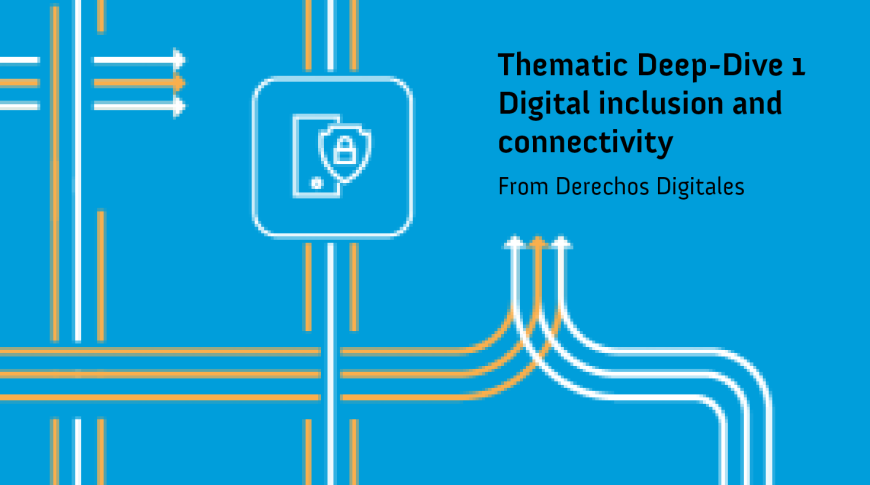
Thank you very much, co-facilitators and UN Tech Envoy. Derechos Digitales appreciates the opportunity to participate in this deep dive. Regarding this important thematic of Digital Inclusion and Connectivity we would like to contribute with some points.
First, we understand that to overcome the digital divide in rural, peripheries, different urban contexts, regarding gender divide, we understand that different connectivity initiatives and public policies should be encouraged by this Global Digital Compact, fostering the efficient use of Universal Service Funds based on structured programs and specific goals. Gender digital divide is not only manifested in connectivity data, but have deeper structural roots, including in relation to access to education, access to education about technologies and how gender violence also undermines meaningful access, as discussed in the 67th Session of the Commission on the Status of Women (CSW) a few weeks ago.
Second, we understand that the connectivity conditions should be promoted through public, private, community, and multistakeholder alliances; and should include collective alternatives to access, for instance community centers, community networks or public installations, with a complementary access perspective. In this sense, Global Digital Compact could share best practices, definitions, and concepts in already existing specialized forums with multistakeholder participation.
Third, the design, implementation, and evaluation of digital public policies at the local, national, regional, and global levels should incorporate human rights standards since the beginning, with formal mechanisms for multistakeholder participation. In this sense, connectivity must remain a right and not an imposition. The option for no connection must be respected and digitalization policies must always consider accessible analog alternatives for access to essential services and the exercise of fundamental rights. The deployment of connectivity infrastructures in areas where indigenous communities are located must always be preceded by consultation and free, prior, and informed consent, together with the right to refuse such installations. Different social realities in the design of consultation mechanisms, should be considered, fostering meaningful participation.
Fourth, we understand that GDC should encourage policies to promote the production and distribution of local content in an accessible and equitable manner. For example, productions subsidized with public resources should prioritize the adoption of free licenses that favor access to information, education, and culture. And removing disproportionate restrictions from existing legal frameworks on the fair use of content protected by copyright rights.
Finally, we would like to highlight that measures must be taken to prevent the privatization of knowledge and education by specific actors, strengthening public education and establishing concrete rules to regulate the use of private digital systems in educational contexts. We understand that mechanisms should encourage the production of public interest technologies including educational ones, at the local level.
Thank you very much.